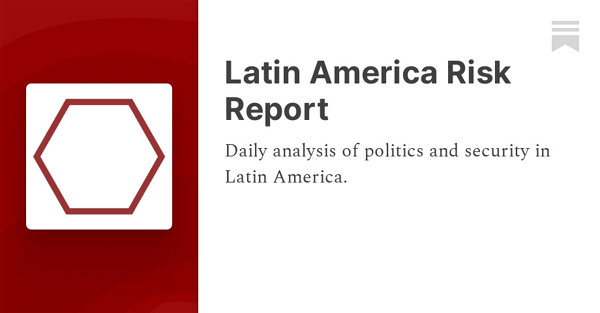- Guatemala’s June 25 election is on track to cement the democratic backsliding that has plagued the country’s political system in recent years.

In late January we wrote a newsletter about the problems facing Guatemala’s election:

A little more than two months later, the analysis in that post remains accurate. In the lead up to Guatemala’s June 25 election, public officials have leveraged their authority to limit the presidential field and exclude opposition candidates from running.
Political maneuvering to disqualify candidates is on top of broader anti-corruption rollbacks in Guatemala including a campaign to target journalists and prosecutors that has jailed some and forced others into exile. Given the current state of the election and political situation, the next president is not likely to fix those challenges and may even worsen them.
The Supreme Electoral Tribunal has barred opposition candidates from running in the 2023 presidential race, including prominent indigenous politician Thelma Cabrera of the Movimiento Por la Liberación de los Pueblos (MLP) party. Several advocacy groups have called on the Supreme Electoral Tribunal to overturn its decision to bar Thelma Cabrera and her running mate, Jordán Rodas, from running in the election, though the court has taken no action to reverse its standing on the matter. Cabrera came in fourth place in the 2019 election, but is unique in representing Guatemala’s indigenous, which make up a majority of the country.
Similarly, the Public Ministry filed a complaint against Edmond Mulet, another presidential candidate who came in third place in the 2019 race. The Public Ministry reports they opened an investigation into Mulet for promoting his political image by speaking in support of journalists under investigation by the Guatemalan government, and the investigation into Mulet is aimed, presumably, at keeping him from running for president. Notably, the prosecutor in charge of investigating Mulet, Rafael Curruchiche, is on the State Department’s list of corrupt and undemocratic actors.
Zury Ríos is the front-runner
Zury Ríos, daughter of Efraín Ríos Montt, remains the front-runner, though her support still remains far from guaranteeing her a spot in the second round that will be held in August. While she was barred from running in 2019 for being the child of a former dictator, she is now allowed to run this election cycle.
Zury is not pro-Giammattei, but she has two advantages that have kept her in the race even when Cabrera has been pushed out and other candidates are threatened. First, her conservative politics may make her appear less of a threat to the establishment and business community. Second, she has her own network of political influence and capital that has successfully pushed back against attempts to remove her from the race well in advance of the recent controversies.
Polls are limited, sometimes include the banned candidates, and show a significant level of rejection of all candidates and the political system. No candidate is earning above 25 percent of voter support in any poll. That means that even subtle shifts in the vote distribution could have a significant impact on the result of the elections. As seen in several other recent Latin American elections, countries with high levels of voter discontent, large numbers of undecided voters, and large numbers of candidates often have surprising late shifts.
A poll from MassiveCaller, updated on March 7, showed Zury Ríos and Edmond Mulet tied in first place with 14% and Sandra Torres with 8%. CIDGallup’s February poll has Ríos and Sandra Torres ties in first place with just over 20% each. Sandra Torres’s support may be undercounted in some polls given her previous second place finish came from rural votes that are often missed in various survey models. Another strong showing by Torres is likely in this election, and while she may not win the presidency, she is likely to once again be a powerbroker in the legislature.
In less than three months, Guatemala will choose a new president and all 160 seats of Congress. The election is unlikely to produce results that adequately represent the needs and preferences of the country’s most underserved groups, and discontent and unrest are very likely to play a large part in the political environment in Guatemala under the next government.
For more information: El Faro has an interview today with a prosecutor who has fled into exile. Here and Now held an interview with the son of José Rubén Zamora, who has now been in prison for eight months. WOLA did an excellent podcast in early March about the election that is worth listening to.
Arianna Kohan contributed to researching and drafting today’s newsletter. For more info about Hxagon’s analysis in Guatemala and elsewhere in the hemisphere, please email info@hxagon.com












